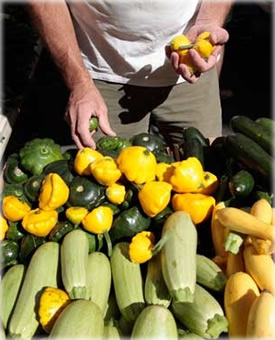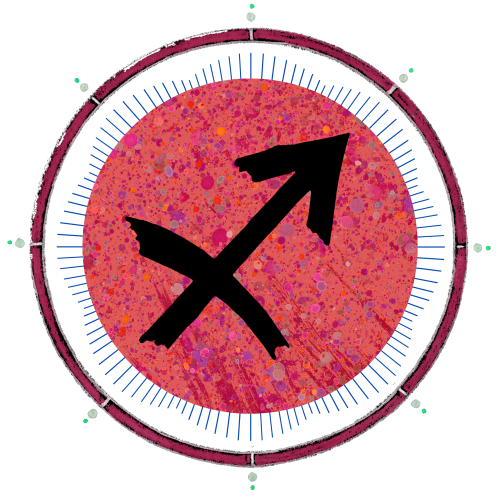Dear Planet Waves Reader:
The first four discovered asteroids all changed signs recently, and are making interesting moves in their new homes. Ceres, the first discovered asteroid, is newly arrived in Capricorn, after a long retrograde that took her back over the Galactic Center in Sagittarius. She’s returned to Capricorn and on Tuesday is making a conjunction to Pluto.

Ceres and Pluto have an infamous relationship in mythology, owing to their claims on Persephone (pronounced per-seff-o-nee); she was the daughter of Ceres/Demeter, and the consort of Pluto/Hades. Ceres is the Earth Mother of mythology and astrology, with associations to both food and mother-daughter relationships. On the latter topic, she signifies the bonding between mothers and daughters that is often about moms who don’t let go of their female children and strive to run their lives. There are also stories of loss, apropos of Ceres losing her daughter to the lord of the underworld, where (during the winter, anyway) she is the queen.
Ceres is also about balance: the myth is an explanation of how the seasons work, which is a story of equilibrium. So you can apply Ceres themes to any aspect of life that depends on processes involving cyclical balance. One of them is food, one of the basic themes covered by Ceres. Combining this with Pluto and Capricorn, we get an image of the way that the corporate system tries to control everything we eat, and in the process offers us what is eatable but not really edible. In our society, one of the most out of balance issues is food, which includes the economics of food production and availability; the availability of products in different regions, and the distribution of knowledge.
Ceres conjunct Pluto has a get-serious feeling to it, and a touch of life-or-death struggle. In trying to reclaim food, we come up against what The New York Times described Sunday as “some of the most sophisticated, powerful corporate interests in the world.” Most of them have more on their minds than putting dinner on the table.
Monsanto, which has taken over the seed industry during the past 20 years with its genetically modified organisms, recently hired Xe Services, formerly Blackwater — a company that rents out mercenary armies. In the past, Monsanto has been involved in providing Agent Orange to the military, as well as many instances of contamination within the food supply process, and conducting fraudulent safety testing to cover up the dangers.
The corporate food machine has given us many things that are not really food: hybridized and genetically modified wheat that has a ridiculously high gluten content; a country that gets 40% of its calories from high fructose corn syrup, which clogs the arteries and causes diabetes; numerous products still containing trans fats; dairy products and meats laced with toxins, stimulants and antibiotics — all of it standard fare. If we’re wondering why the cancer rate is about 50%, we need to wonder no more.

At the same time, we are seeing a renewal of local farming. This is part of a wider movement oriented on ‘organic’ foods, many of which have the life processed out of them as much as ordinary foods. Check out this discussion of ‘organic’ supermarket eggs on Mercola.com.
It’s true that the designation ‘organic’ can be truly helpful with certain vegetables and other products, such as rice. It can make a difference in the toxicity of the food, and it can signify that it’s non-GMO, since that violates the standards for organic food.
Organic farming, done right, takes a whole different approach to the planet and how she produces food. Something in Europe called biodynamic farming is an even better example of working with the cycles of the Earth in order to get helpful results. Remember that in this game of eating actual food, it’s not just the label ‘organic’ that’s going to save us. It’s being aware of what we actually eat and where it comes from. Food that’s processed or fractioned (such as white flour or refined sugar) has many of the same problems whether it’s organic or not.
It is true that organic helps. It’s also true that megabusiness is taking over the concept of organic food faster than we realize. And there is the difficulty discerning what is what. Some of this is about labeling; some is about how food is distributed. One of the most significant challenges we face is genetically modified or GMO grains, which are often sold unlabeled on the open market. Mostly banned in Europe, Americans are constantly eating GMO wheat, corn, potatoes and many other foods. What I find interesting is how submissive most people are, acting as if it’s some kind of trivial fact, or the ‘thing of the future’ that we’re going to have to live with no matter what.
We don’t want Monsanto in this business — it’s the same company that had entire factories contaminated with PCBs, and that sent out everyday household products (such as Lysol) knowingly, and preventably, contaminated with dioxin for years.
Ceres-Pluto in Capricorn is a call to revolution in what we eat and where we get it. It is an invitation to know the people who produce our food. Ridiculous as it seems, in many places (with love and attention, and hopefully a farmer’s market) it is possible. Whole products are better: that is, actual potatoes rather than frozen French fries, or actual ground beef from a butcher or supermarket meat counter rather than from a packing plant.
Local is indeed better: smaller-scale farming, using far less energy to transport the products, if you can get it. There are many communities where small-scale food production simply does not happen, though the number of family farms finally seems to be increasing many places for the first time in generations. A return to small-scale farming would indeed be a revolution, and one that will eventually prove itself to be inevitable as it ceases to be profitable to ship broccoli 2,000 miles.
Mostly though what we need is a revolution in our minds, involving the definition of what we consider food. There is something about learning from our grandparents here; there is something about creating the time and energy to incorporate more wholesome and aware food choices into our lives. It is amazing how little we know.
As I’ve written before, I have celiac. This means I cannot eat food containing or contaminated with wheat or several other grains (such as barley or rye). It also means that every time I eat out, I have a conversation with the server about how the food is prepared and what it contains. That, in turn, is like ongoing sociology research into what people in the food industry know about food.
At least five times, someone has said to me some version of, “Really? There’s wheat in pasta?”
Yours & truly,
![]()



